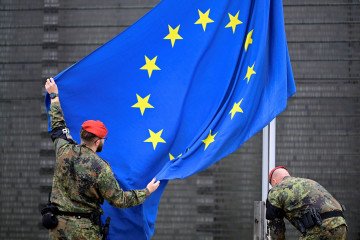- Category
- World
Why Russia and North Korea’s Alliance May Pose Grave Risks to Indo-Pacific Stability
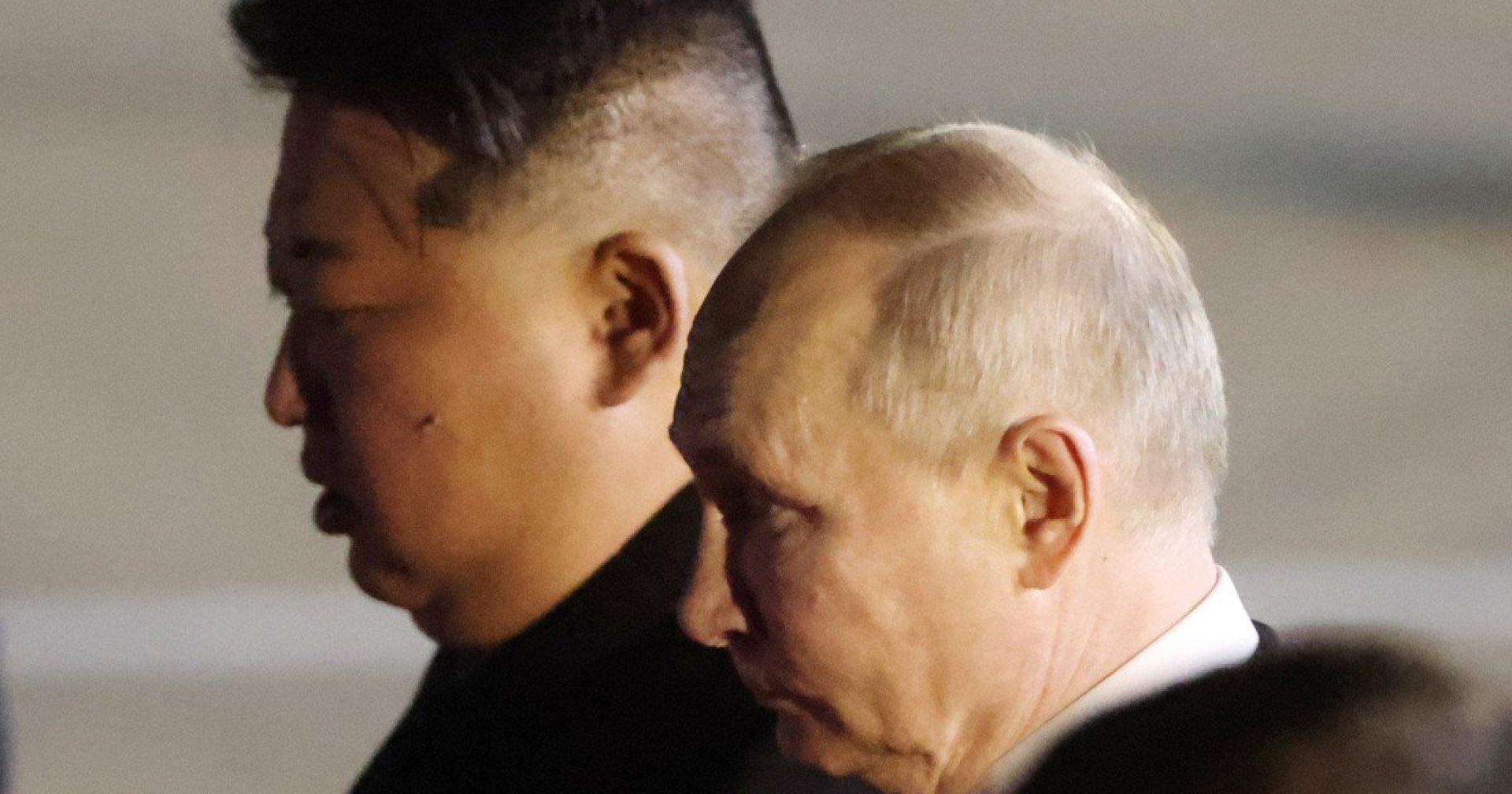
As Russia deepens its ties with North Korea, Ukraine warns of mounting threats to stability in the Indo-Pacific, with implications for the entire region.
Ukraine sent out a stark warning on November 28 in light of North Korea’s growing military cooperation with Russia. Ukraine’s Foreign Ministry suggested that the deepening alliance between the two countries was “very grave for the Indo-Pacific,” and that if left unchecked, could threaten to destabilize not only the Korean Peninsula but the wider region as a whole.
“A number of our partners are seriously concerned about the developments of deeper cooperation between Russia and North Korea,” said Heorhiy Tykhyi, the spokesperson for Ukraine’s Foreign Affairs Ministry. Tykhyi suggested that these developments, if unresponded to, would create a completely new dynamic not only in Ukraine but also in the Indo-Pacific. “This security is directly linked—between Europe and the Indo-Pacific.”
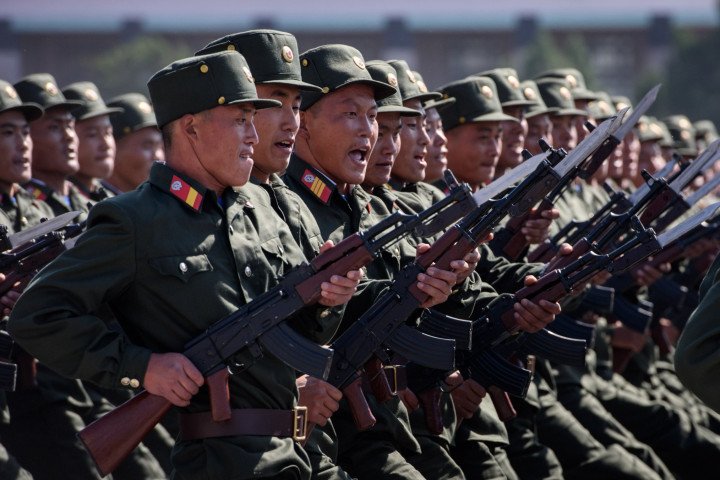
More than 11,000 North Korean troops are suspected to be operating on the western edge of Russia’s Kursk region, where Ukrainian troops currently have a foothold. Recent reports show that these troops have disguised themselves as indigenous people of eastern Russia.
Russia today is a global threat, that needs a global response.
Heorhiy Tykhyi
Spokesperson for Ukraine’s Ministry of Foreign Affairs
How is North Korea supporting Russia?
In addition to these troops, North Korea has provided Russia with critical military supplies, including millions of artillery shells of 152mm and 122mm calibers, which are essential for its sustained artillery operations in Ukraine. It has also delivered advanced weaponry, such as 170mm self-propelled howitzers, specifically the M-1989 Koksan, known for their long-range precision, and 240mm multiple launch rocket systems (MLRS) to enhance Russia's capacity for large-scale, rapid-fire rocket strikes. These transfers were confirmed through satellite imagery and intelligence reports and highlight a deepening military cooperation between the two nations who seek to strengthen their positions amid international sanctions.
How is Russia supporting North Korea?
In return, Russia plays a significant role in supporting North Korea through military, economic, and diplomatic means. The military collaboration between Moscow and Pyongyang is deepening with Russia supplying advanced weaponry in exchange for North Korean troop support in Ukraine.
Some of this advanced weapony icludes the S-400 air defense system. The air defense system is designed to protect against a wide range of aerial threats, including aircraft, drones, cruise missiles, and ballistic missiles. It is regarded as one of the most sophisticated surface-to-air missile systems in the world and represents a significant upgrade to North Korea's defensive infrastructure. The S-400 air defense system can shoot targets as far as 400 km (250 miles) away and is equipped with powerful radars that can detect stealth aircraft and hypersonic missiles. The S-400 can track and target up to 80 aerial threats simultaneously. The possession of this system is not just a defense mechanism but also a tool of geopolitical influence for North Korea who aims to enhance its power globally.
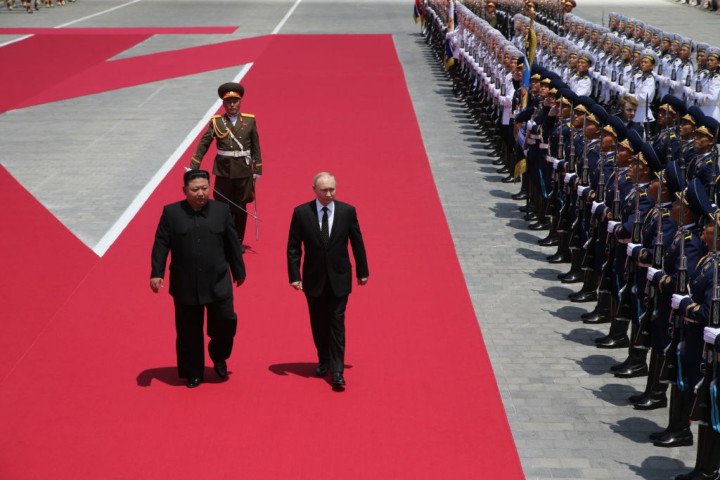
Economically, Russia alleviated North Korea’s financial strain by forgiving 90% of its Soviet-era debt and fostering trade relations by using the ruble to reduce reliance on Western currencies. Diplomatically, Russia has also protected North Korea on the global stage, using its veto power in the UN Security Council to block sanctions and resolutions.
Recently the two nations formalized their alliance with a comprehensive strategic partnership treaty that includes mutual defense provisions. These efforts reflect Russia’s commitment to bolstering North Korea’s resilience and reinforcing their growing partnership for the long termThese strengthening ties, if unresponded to, could create a completely new dynamic not only in Ukraine but also in the Indo-Pacific. Tykhyi emphasized the strong connection between security in Europe and the Indo-Pacific, calling on allies to take decisive action. “The way to stop this,” he said, “is to let Ukraine win here [in Ukraine]. To stop Russian aggression here.”
Russia’s full-scale invasion of Ukraine has disrupted the post-Cold War order and created destabilization globally. Many hope that a resolution in Ukraine will bring wider stability to the Indo-Pacific as well as the Middle East.
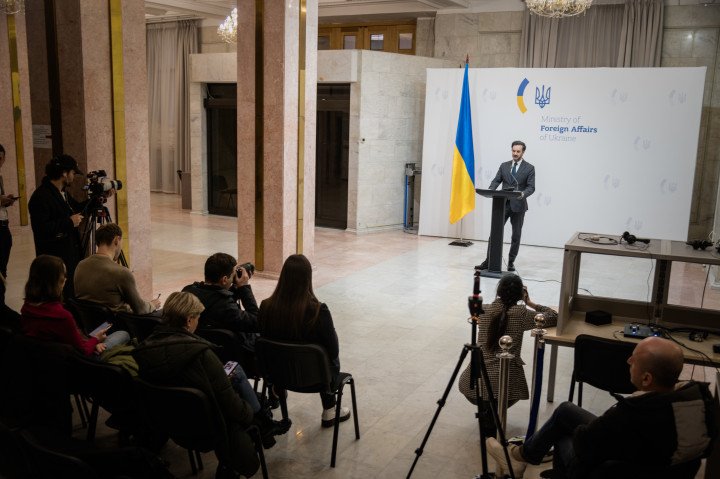
“Whoever tries to tackle security in one of the regions, needs to take the picture in its [entirety],” said Tykhyi, stressing that these issues are not mutually exclusive. “Russia today is a global threat, that needs a global response.”
-fca37bf6b0e73483220d55f0816978cf.jpeg)
-27ef304a0bfb28cb4215e5deede4a665.png)
-46f6afa2f66d31ff3df8ea1a8f5524ec.jpg)
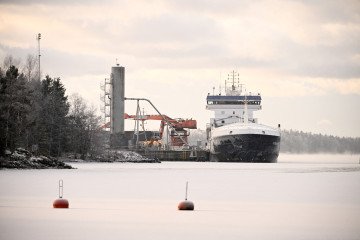
-605be766de04ba3d21b67fb76a76786a.jpg)
-2c683d1619a06f3b17d6ca7dd11ad5a1.jpg)

